About PAPAS
PAPAS is a multistate transdisciplinary team of nematologists, plant pathologists, plant breeders, economists, computer scientists, and extension personnel from major potato producing states in the U.S. dedicated to solving the industry-wide challenges in managing potato nematodes.
Advancing Nematode Control in Potatoes
With feedback and support from potato industry leaders, PAPAS received a $6.8 million grant through the USDA National Institute of Food and Agriculture (NIFA) Specialty Crop Research Initiative for its project: Systems Approach to Controlling Nematodes in US Potato Production.
Potato nematodes are among the most highly regulated plant pests in the world, due to their impact on trade, detrimental effect on yield, and ease by which they can be spread via infested tubers or soil.
By delivering data-driven tools, research, and new solutions for more effective, sustainable control of plant-parasitic nematodes, PAPAS is helping potato farmers:
- Protect potato crop yields
- Limit economic losses
- Avoid regulatory action
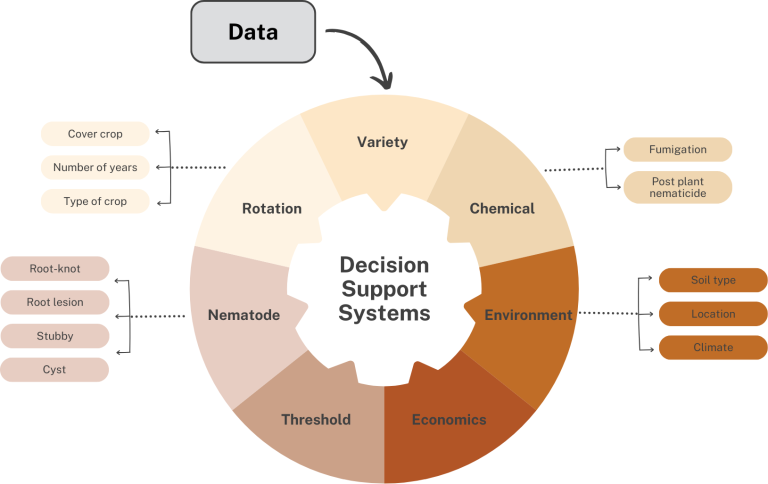
PAPA Project Objectives
Nematode management requires an approach that evaluates the entirety of the system and integrates the full spectrum of available control strategies.
While components of nematode management have received attention over the decades, including breeding for resistance, crop rotation, and use of nematicides and fumigants, incorporating all of these factors into a systems approach for the management of these production-limiting pests has never been attempted.
Therefore, our goal for this project is to develop a systems approach that farmers can implement to minimize the impact of nematodes on potato production.
Our research focuses on improving diagnostics, developing nematode-resistant commercial potato varieties, and exploring plant-based nematicide compounds. Specifically, our results will help farmers manage current infestations and prepare for future risk by developing:
- Decision support tools, including diagnostic methods and economic thresholds;
- Potato varieties with RKN and PCN resistance suitable for deployment; and
- Novel nematicidal compounds.
Objective 1. Deploy improved diagnostics and decision support for nematode management
Key considerations of a systems approach to nematode management include a field evaluation of the nematode species present and the size of the population. Integral to this approach are effective diagnostic tools (proper and rapid identification of nematode pathotypes) and establishment of nematode detection and damage thresholds. Once the extent of the nematode problem has been identified, management decisions will depend on availability of tools for their control.
Objective 2. Accelerate the development of potato varieties with nematode resistance through plant defense genes
Potato is the top vegetable crop produced in the U.S., but no U.S. potato variety has meaningful resistance against pale cyst nematode (Globodera pallida) or root-knot nematodes (Meloidogyne chitwoodi, M. hapla), and only two minor varieties have resistance against golden nematode (G. rostochiensis) pathotype Ro2. By way of contrast, dozens of U.S. varieties are resistant to golden nematode pathotype Ro1, which have been key to controlling the pest in New York for the past several decades.
Litchi tomato (Solanum sisymbriifolium) displays nearly complete immunity to potato cyst nematodes (PCN) as well as several different root knot nematode species. No potato cultivar currently in use has this spectrum of resistance. We are searching for plant defense genes that litchi tomato has, and identifying chemicals that this plant produces to make this plant immune to such a wide variety of nematodes.
Objective 3. Develop novel chemistries for nematode management in potato production
We have also analyzed litchi tomato and Q-expressing potatoes (partially resistant) to search for small chemicals that might account for their abilities. This research identified more than 2,000 chemicals, and detected many others that could not be identified. Most were present in similar amounts in both sensitive and resistant plants, but some chemicals were more abundant in the latter. These will be tested for nematocidal activity in the coming year as we search for natural nematicides that could be applied to infested fields.
Objective 4. Pass it along: Engage potato growers, potato industry, and stakeholders
With a strong emphasis on collaboration, PAPAS shares research findings with industry stakeholders to promote more sustainable and integrated pest management practices in potato cultivation. Delivering information and research results to potato growers and industry stakeholders will encourage adoption within integrated systems approaches for effective nematode management.
Our research team is actively engaged with the Potato Research Advisory Committee (PRAC), a committee comprised of key state association managers and nominated growers representing all time zones, from the ranks of Potatoes USA, a national commodity board representing the interest of growers nationwide, and National Potato Council (NPC) grower members. Disease management is one of the pillars of interest for PRAC. Potatoes USA and PRAC represent strong communication conduits to inform growers and state association managers on our progress and key outcomes.
Our Team

Louise-Marie Dandurand, Ph.D.
PAPAS Project Director
Potato Cyst Nematode Program Director
Professor of Plant Pathology
University of Idaho
Email: LMD@uidaho.edu
Phone: 208-885-6080
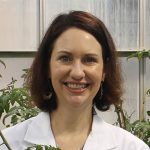
Cynthia Gleason, Ph.D.
PAPAS Project Co-Director
Assistant Professor
Washington State University
Email: cynthia.gleason@wsu.edu
Phone: 509-335-3742

Joseph Kuhl, Ph.D.
PAPAS Project Co-Director
Associate Professor
University of Idaho
Email: jkuhl@uidaho.edu
Phone: 208-885-7123

Walter DeJong, Ph.D.
PAPAS Project Co-Director
Professor
Cornell University
Email: wsd2@cornell.edu
Phone: 517-881-3740

Philip Watson, Ph.D.
PAPAS Project Co-Director
Professor
University of Idaho
Email: pwatson@uidaho.edu
Phone: 208-962-1312
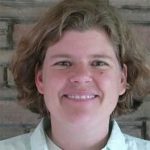
Inga Zasada, Ph.D.
PAPAS Project Co-Director
Nematologist andn Owner
NemaSolutions, LLC
Email: inga@nemasolutionsllc.com
Phone: 541-602-4615
Principal Investigators
Allan Caplan, Ph.D.
PAPAS Principal Investigator
University of Idaho
Marisol Quintanilla, Ph.D.
PAPAS Principal Investigator
Michigan State University
Max Feldman, Ph.D
PAPAS Principal Investigator
USDA-ARS
Ananth Kalyaranaman, Ph.D.
PAPAS Principal Investigator
Washington State University
Rich Novy, Ph.D.
PAPAS Principal Investigator
USDA-ARS
Inna Popova, Ph.D.
PAPAS Principal Investigator
University of Wisconsin
Sagar Sathuvalli, Ph.D.
PAPAS Principal Investigator
University of Oregon
Rhett Spear, Ph.D.
PAPAS Principal Investigator
University of Idaho
Xiaohong Wang, Ph.D.
PAPAS Principal Investigator
USDA-ARS
Jonathan Whitworth, Ph.D.
PAPAS Principal Investigator
USDA-ARS
Fangming Xiao, Ph.D.
PAPAS Principal Investigator
University of Idaho
Graduate Students and Post Doctorals

Faith Fishburn
I’m Faith Fishburn and I’m pursuing my Ph.D. in Plant Sciences at the University of Idaho. I joined the University of Idaho as an undergraduate in 2019, majoring in Agricultural Biotechnology and Plant Genomics. After graduating in 2022, I decided to stay at the University of Idaho for my graduate degree.
My overarching research objective is to develop potatoes resistant to the Potato Cyst Nematode (Globodera pallida). I work to incorporate genes from a naturally resistant plant species, Litchi tomato (Solanum sisymbriifolium), into potatoes. I am currently working on evaluating the resistance conferred to potatoes from six novel receptor-like-kinase genes.
Nataniel Jablonski
My name is Nataniel Jablonski. I am a PhD student in Plant Science at the University of Idaho. Before this program, I completed my bachelor’s and master’s degrees in biotechnology at Maria Curie-Sklodowska University in Poland. My research interests include the molecular basis of plant-pathogen interactions, genetic engineering, and bioinformatics.
I am currently exploring how a wild plant from the nightshade family, the Litchi Tomato, naturally fights off a damaging pest known as PCN (pale cyst nematode), which threatens Idaho’s famous potatoes. My research aims to develop transgenic potatoes with novel resistance genes that, alone or combined with other sources of resistance, could successfully reduce yield loss from nematode infections.
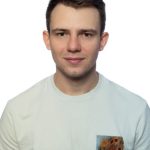

Chloe Ramirez
My name is Chloe Ramirez. I am a fourth year Ph.D. student in Dr. Fangming Xiao’s lab at the University of Idaho. I graduated from Louisiana State University of Alexandria in 2019, where I earned two degrees: a B.S. in Biology and B.S. in Chemistry. Before joining the Xiao lab, I worked as a technician in a Molecular and Cellular Physiology laboratory at LSU Health Shreveport.
Our lab’s current research is focused on understanding the cellular mechanisms of plant immune response to a nematode pheromone, ascaroside #18. We recently discovered that ascaroside #18 initiates plant immune responses through perception by the cell surface receptor Nematode-Induced Leucine-Rich Repeat Receptor-Like Kinase 1 (NILR1). The next goals are to uncover the downstream molecular steps in this pathway, including both typical and atypical cellular immune responses to pathogens.
Hannah Baker
My name is Hannah Baker and I am a research technician in the Zasada lab at the USDA-ARS in Corvallis, OR. I primarily work on development and evaluation of nematode control mechanisms through different application methods of the trap crop Litchi tomato, Solanum sisymbriifolium. I serve as our primary field technician to support the work done by our graduate students and am trained in nematode identification for population analyses of nematode communities.
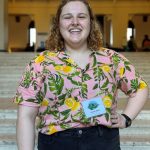
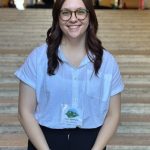
Gabby Studebaker
My name is Gabby Studebaker and I’m a Master’s student in the Department of Botany and Plant Pathology in Inga Zasada’s lab. I am studying root-knot nematodes, Meloidogyne chitwoodi and M. hapla, and their impacts on potato yield and quality in the Pacific Northwest. I am also working on a species-specific qPCR for M. hapla for an updated view of the distribution in the PNW.
Hans Mejia
My name is Hans Mejia and I am an international student from Guatemala in the Zasada lab at the USDA-ARS in Corvallis, OR. I previously worked as an agronomist, handling high-value horticulture crops and rural development. I have also worked with various environmental topics, such as water management, air pollution, and environmental conflict management. My main research here at Oregon State University is the distribution of the Potato Cyst Nematode in Guatemala and the vertical distribution of plant parasitic nematodes in Oregon, Washington, and Idaho.
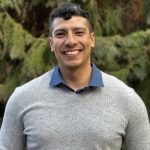

Hashim Ibrahim
Dr. Hashim Ibrahim is a postdoctoral fellow at the University of Wisconsin-Madison (USA). Hashim studied Industrial Chemistry at the Nasarawa State University, Keffi (Nigeria), obtaining a Master of Science degree in 2015. In 2023, he obtained his PhD degree in Natural Product Chemistry from the University of Nairobi (Kenya) under the supervision of Professor John M. Onyari. His research focuses on the extraction, isolation, and structural elucidation of biopesticides from terrestrial plant sources. Currently, he is working on isolation and identification of nematocidal compounds from Solanum sisymbriifolium.

Sarah Hale
My name is Sarah Hale and I am currently a Master’s candidate working under Dr. Joseph Kuhl. After earning my B.S. of Plant Science from University of Idaho in Fall of 2022, I joined the program to better my understanding of genetics and plant pathology. My research focuses on discovering more efficient methods of regulating Pale Cyst Nematode defense genes in potato. Using regulatory regions from Sticky Nightshade, a resistant potato relative, I hope to further efforts to develop a transgenic potato variety that is resistant to this nematode pest. After graduation, I plan to work in industry or research, using genetics to protect our food supply.
Rocio Silvestre
My name is Rocio Silvestre, and I am a Peruvian with a deep passion for potatoes. I earned my BS in Biology from Universidad Nacional Federico Villarreal and MSc in Biotechnology at the Universidad Nacional Mayor de San Marcos in Lima, Peru. My professional journey began at the International Potato Center (CIP) in Peru, where I was initially focused on bioinformatics for early plant virus identification. I then moved to CIP-Genebank as the curator for the long-term in vitro conservation of potato and sweet potato breeding lines. In May of 2024, I received my PhD in Plant Sciences at the University of Idaho. My doctoral research focused on mapping PCN (Globodera pallida) resistance in russet tetraploid potato. I am currently a Postdoctoral Associate working with Dr. Louise-Marie Dandurand in the Potato Cyst Nematode Program at the University of Idaho. My research focuses on the molecular detection, identification, and genetic diversity of potato cyst nematode from South American populations.


Zarah Bita Amiri
Bita Amiri is a doctoral student and laboratory manager in the Department of Entomology, Plant Pathology and Nematology in Dr. Louise-Marie Dandurand. She received her master’s degree from the University of Idaho in Microbiology, Molecular Biology and Biochemistry in 2013. She started her career as a Research Specialist in the Potato Cyst Nematode (PCN) Program in 2014. Bita was the 2023 recipient of the Outstanding Staff Professional Support at the University of Idaho. Now, in her graduate career, one of her researches focuses on the mechanisms by which the regulated potato cyst nematode, Globodera pallida overcomes in potato. Another one of her projects identifies the potential role of the recently described potato cyst nematode rhabdovirus (PcRV) in the Idaho G. pallida populations as a biocontrol to control G. pallida as well as the effect of this virus on Idaho G. pallida pathogenicity. She is also investigating the changes in xenobiotic detoxification and metabolism in progeny G. pallida reared on different genetic background of resistant host and the role of these genes in erosion of potato resistance to G. pallida. Bita is interested in research on the virulent strategies deployed by phytoparasitic nematodes that facilitates the development of novel control approaches.
Paige Hickman
B.S. in Environmental Science, Allegheny College, M.S. in Horticulture, University of Arkansas, Ph.D. in Entomology, University of Idaho
Originally from New Jersey, Paige joined the Dandurand PCN lab in 2019 after completing her master’s degree at the University of Arkansas where she researched cover crops. Paige completed her Ph.D. in Dr. Dandurand’s lab in December 2024 and then became a Postdoctoral Fellow. Paige is interested in integrated pest management and sustainable control strategies. Some of her research focuses on trap crops and crop rotation for control of Globodera pallida. Paige received a Western SARE graduate student grant in 2021 to help support this work. She is also studied the impact of varying PCN population densities on different potato varieties, which was used to create predictive models for potato yield loss. Another one of her projects investigates pathogenicity and competition in co-infestations of Globodera pallida and Globodera ellingtonae. Paige was the 2022 recipient of the Potato Leadership, Education and Advancement Foundation Academic Scholarship in recognition for her Ph.D. work benefitting the potato industry. She has already published some of her trap crop work in the Journal of Nematology. Paige wants to continue researching plant-parasitic nematodes and help create practical and sustainable control strategies for growers.

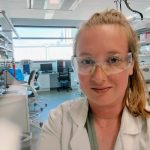
Lindsay Schulz
Lindsay is a Ph.D. candidate and research associate in Dr. Dandurand’s lab at the University of Idaho Department of Entomology, Plant Pathology, and Nematology. She received her bachelor’s degree in biology in 2015 and master’s degree in resource management in 2020 from Central Washington University. She started working in Dr. Dandurand’s lab at the University of Idaho in 2021. Since starting Lindsay has received a Wester SARE grant and has completed two publications. Her research focuses on sustainable methods of control of Globodera pallida using the trap crop Solanum sisymbriifolium, commonly known as litchi tomato. She is working on isolating novel chemistries from this plant to produce a nematicide against Globodera pallida. Lindsay is passionate about sustainable farming practices and wants to help producers sustainably manage plant parasitic nematode infestations. Lindsay wants to continue researching Globodera pallida and Solanum sisymbriifolium to develop sustainable control methods for this devastating pest of potato.
Chandni Shah
Dr. Chandni Shah is a Postdoctoral Fellow at the University of Idaho, working under the mentorship of Dr. Louise-Marie Dandurand. She earned her Ph.D. in Biotechnology from Sardar Patel University, Gujarat, India, in 2023. During her doctoral studies, she was awarded a prestigious national scholarship and received the Best Thesis Award for her exemplary research. She also received an international travel award and has presented her work at several national and international conferences.
Dr. Shah’s research focuses on the eradication of potato cyst nematodes (Globodera pallida), a major threat to potato production. As part of the PAPAs project, her work involves identifying bioactive compounds from the trap crop Solanum sisymbriifolium (litchi tomato) and investigating their biochemical properties through metabolomic analysis. Her goal is to uncover the mechanisms by which these compounds suppress nematode populations. She is also working on development of molecular diagnostic assays (LAMP) to improve the detection and monitoring of nematode infestations. Her interdisciplinary approach combines molecular biology, metabolomics, and applied nematology to support innovative solutions.


Pia Spychalla
Meet the Graduate Student: Pia Spychalla Pia’s upbringing on a potato farm in Northern Wisconsin helped her find her passion for potatoes at an early age. Following her undergraduate studies at the University of Wisconsin – Madison, she started her Ph.D. in plant breeding at Cornell under the guidance of potato breeder Walter De Jong. As part of her Ph.D., Pia is overseeing the G. pallida resistance breeding portion of Cornell’s program, since hands-on experience is vital when training to become a potato breeder. Having shadowed Walter and field technician Matt Falise during the past two field seasons, she has started grasping the fundamentals of selection, but there is still a lot to learn. Pia’s research focuses on testing the hypothesis that stacking two partial G. pallida resistance genes will result in higher resistance levels compared to each individual gene. This hypothesis has previously been tested with other combinations of G. pallida resistance genes. In the upcoming summer of 2024, she plans to screen her population with DNA markers to identify clones with both, one, or none of the target genes. Collaborating with nematologist Louise-Marie Dandurand at the University of Idaho, they will assess the resistance levels of these clones. This research will help inform breeders working to develop potato cultivars resistant against G. pallida. In addition to her research pursuits, Pia has an interest in science communication and is minoring in the field. She has created content for the PAPAS project by writing a blog series and photographing the breeding process. This newsletter is a brief overview of what she hopes to cover in the series and includes photographs she has taken of the Cornell Potato Breeding Program
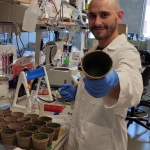
Sean McCotter
Hi there, I am Sean McCotter, and I am a postdoctoral researcher in Cynthia Gleason’s lab in the Dept. of Plant Pathology at Washington State University. WSU Plant Pathology is a familiar place for me since I once worked in Dr. Lori Carris’ mycology lab during my master’s studies. It is nice to be back! My PhD is from the University of British Columbia. There, my molecular genetics and cell biology research in the Kronstad Lab investigated connections between fungal nutrition, secondary metabolism, and virulence factors expression during mycoses of plants and animals; particularly, corn smut disease of maize caused by Ustilago maydis, and the opportunistic human pathogen, Cryptocococcus neoformans. My current research in the Gleason Lab focuses on bionematocide development to control root-knot nematode infestations using the litchi tomato, Solanum sisymbriifolium. Since joining the Gleason lab in November 2024, I have been working on the PAPAS project, taking over Gleason Lab alumnus Koy Chandler’s exciting work characterizing the root-knot nematode-inhibitory activities in litchi tomato plant extracts. I look forward to continuing and expanding on Koy’s work, and I am excited to be a part of PAPAS. Colleagues, feel free to say hello, I am always happy to chat about science.
PAPAS Advisory Committee
The PAPAS advisory committee consists of potato industry professionals, state and federal regulatory representatives, and academic individuals with experience working with researchers and extension professionals.
The main role of this committee is to provide advice from our stakeholders to advance our proposed research and extension efforts, as well as evaluate our progress and provide recommendations so that the milestones of the project are achieved.
Farmers, Agronomists, and Processors
Lorin Clinger
President of Lorin Clinger Industries
Shelley, Idaho
Chris Hansen
General Manager for CSS Farms
Empire State Potato Growers
Mark Urquhart
Senior Director of Farm Operations
Cavendish Farms
Diagnostic Clinics
Sam Chavoshi
Director of AgNema
Potato Grower Organizations
Travis Blacker
Industry Relations Director
Idaho Potato Commission
Jim Ehrlich
Executive Director
Colorado Potato Administrative Committee
Andrew Jensen, Ph.D.
Manager
Northwest Potato Research Consortium
John Lundeen
Director of research and analysis, Potatoes USA
Chair of the Potato Research Advisory
Committee (PRAC)
Chris Voigt
Executive Director, Washington Potato Commission
Research Experts
Mike Thornton, Ph.D.
Professor of Plant Sciences, University of Idaho
Philip Roberts, Ph.D.
Distinguished Professor Emeritus of Nematology
University of California, Riverside
Regulatory and Policy
Amanda Bly
PCN Supervisor
USDA APHIS PPQ PCN
Robert Gourley
Idaho State Plant Health Director
USDA APHIS PPQ PCN
Denise Olson
Acting PCN Director
USDA APHIS PPQ PCN
Sylvia Shadman-Adolpho
Field Operations Director
USDA APHIS
PAPAS Research Progress
PAPAS is a research-driven organization dedicated to developing effective solutions for managing potato nematodes. Our team of scientists and experts is committed to providing potato growers, diagnostic labs, and industry partners with the tools and knowledge needed to protect crops and improve yields.
